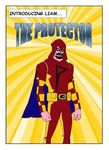Port Erroll Primary School Numeracy and Mathematics Policy - January 2021 January 2022 Date Review Date - Port Erroll School
←
→
Page content transcription
If your browser does not render page correctly, please read the page content below
Port Erroll Primary School
Numeracy and Mathematics Policy
Date
January 2021
Review Date
January 2022Overview
At Port Erroll Primary we have a mastery evidence-based approach to the teaching of numeracy and mathematics. At
the centre of this approach is the belief that all pupils have the potential to succeed; this is an inclusive approach
when it is expected that all children can achieve. Our aim is for all children to enjoy mathematics and have a secure,
deep and adaptable understanding of fundamental mathematical concepts and procedures. We want children to see
the mathematics that surrounds them every day and enjoy developing vital life skills in this subject.
Aims and Purpose
• To develop a growth mindset about the ability to learn mathematics,
• To develop a positive attitude towards the subject,
• To become confident and proficient with number, including fluency with mental calculation
and looking for connections between numbers,
• To create problem solvers, who can reason, think logically, work systematically and apply
their knowledge of mathematics to real life problems,
• To develop mathematical language which children can use appropriately,
• To help children to become independent learners and to work cooperatively with others,
• To appreciate real life contexts to learning in mathematics.
Learning and Teaching
Teaching for mastery involves considering all aspects of this diagram.Key features of a mastery numeracy and mathematics lesson include:
• Whole class working on the same concept or objectives, within a composite each year group would focus on
the same concept
• No class grouping
• Expectation that everyone can achieve
• Differentiation provided through different levels of support, for some children this may require them to
work on a different level of the Maths No Problem scheme
• Time to master concepts before moving on
• Concepts are linked and connections are made
• Teaching is supported by visual representations and models – concrete/pictorial/abstract
• Explicit use of misconceptions to ensure children fully understand a concept
• Higher order questioning, explanation and reasoning extends understanding
• Quick intervention –dealing with misconceptions quickly
• Pupils are taught strategies not methods
• Lessons are carefully planned, with small step progression
• Primary One children following a play based approach
Teaching for Mastery
• It is achievable for all – we have high expectations and encourage a positive ‘can do’ mindset towards
mathematics in all pupils, creating learning experiences which develop children’s resilience in the face of a challenge
and carefully scaffolding learning so everyone can make progress.
• Deep and sustainable learning – lessons are designed with careful small steps, questions and tasks in place to
ensure the learning is not superficial.
• The ability to build on something that has already been sufficiently mastered – pupils’ learning of concepts is
seen as a continuum across the school.
• The ability to reason about a concept and make connections – pupils are encouraged to make connections and
spot patterns between different concepts (e.g. the link between ratio, division and fractions) and use precise
mathematical language, which frees up working memory and deepens conceptual understanding.
• Conceptual and procedural fluency – teachers move mathematics from one context to another (using objects,
pictorial representations, equations and word problems). There are high expectations for pupils to learn times
tables, key number facts (so they are automatic) and have a true sense of number. Pupils are also encouraged to
think whether their method for tackling a given calculation or problem is Appropriate, Reliable and Efficient (A.R.E).
• Problem solving is central – this develops pupils’ understanding of why something works so that they truly have an
appreciation of what they are doing rather than just learning to repeat routines without grasping what is happening.
• Challenge through greater depth - rather than accelerated content, teachers set tasks to deepen knowledge and
improve reasoning skills within the planned learning intention.
Lesson Structure
• Lessons are sharply focused; digression is generally avoided.
• Key new learning points are identified explicitly.• There is regular interchange between concrete ideas, pictorial representations and their abstract/symbolic
representation.
• Mathematical generalisations are emphasised as they emerge from underlying mathematics, which is thoroughly
explored within contexts that make sense to pupils.
• Making comparisons is an important feature of developing deep knowledge. The questions “What’s the same?,
What’s different?” are often used to draw attention to essential features of concepts.
• Repetition of key ideas (for example, in the form of whole class recitation, repeating to talking partners etc) is used
frequently. This helps to verbalise and embed mathematical ideas and provides pupils with a shared language to
think about and communicate mathematics.
• Teacher-led discussion is interspersed with short tasks involving pupil to pupil discussion and completion of short
activities.
• Formative assessment is carried out throughout the lesson; the teacher regularly checks pupils’ knowledge and
understanding and adjusts the lesson accordingly.
• Gaps in pupils’ knowledge and understanding are identified early by in-class questioning. They are addressed
rapidly through individual or small group intervention, either on the same day or the next day, which may be
separate from the main mathematics lesson, to ensure all pupils are ready for the next lesson.
• Teachers discuss their mathematics teaching regularly with colleagues, sharing teaching ideas and classroom
experiences in detail and working together to improve their practice.
• Four lessons will be taught weekly.
Lessons generally follow three stages:
In Focus/Let’s Learn – Introduction/number talk to begin lesson using the concrete, visual and abstract approach.
Guided Practice – children work in pairs and discuss and answer questions. Feedback provided throughout from
both peers and the class teacher.
Workbook – children work independently to demonstrate their level of understanding.
Marking
Marking of mathematics books should, where possible, take place as part of the lesson. It is essential that all marking
picks up and addresses any misconceptions/mistakes and thorough questioning ensures children have clarified their
thinking clearly.
Assessment
In addition to the formative assessment undertaken in lessons, teachers will ensure where possible, Maths No
Problem assessment chapters are completed. Assessment is continuous and ongoing. There should be assessment
opportunities in every lesson.
• Assessment values knowing ‘why’ and ‘how’, as well correct answers.
• Assessment does not solely focus on the need to memorise key facts and procedures and
answer test questions accurately and quickly.
• Assessment values applying mathematics to new and unfamiliar situations.
• Twice annually children’s progress is assessed against the CfE benchmarks.You can also read























































